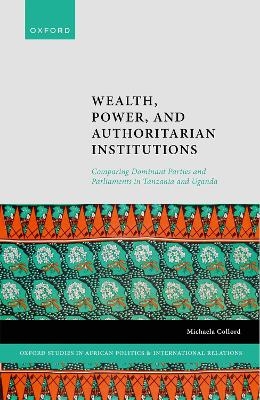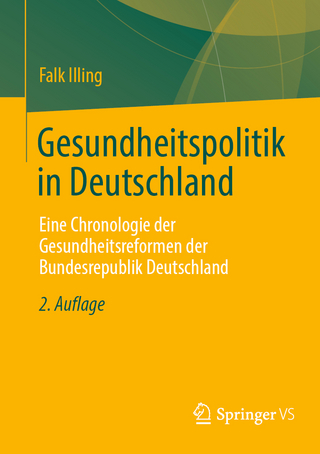
Wealth, Power, and Authoritarian Institutions
Oxford University Press (Verlag)
978-0-19-285518-3 (ISBN)
Where accumulation is more closely controlled by state and party leaders, as was true in Tanzania until economic liberalization in the 1980s, rival factions remain subdued. Ruling parties can then consolidate relatively strong institutional structures, and parliament remains marginal. Conversely, where a class of private wealth accumulators expands, as occurred in Tanzania after the 1980s and in Uganda after the National Resistance Movement took power in 1986, rival factions can more easily form, simultaneously eroding party institutions and encouraging greater legislative strength.
Collord uses this analysis to reassess the significance of a stronger legislature. She considers its influence on distributive politics, both regressive and progressive. She also considers its relation to democratization, particularly in a context of broader liberalizing reforms. The book ultimately encourages a closer examination of how would-be democratic institutions interact with an underlying power distribution, shaping in whose interests they operate.
Oxford Studies in African Politics and International Relations is a series for scholars and students working on African politics and International Relations and related disciplines. Volumes concentrate on contemporary developments in African political science, political economy, and International Relations, such as electoral politics, democratization, decentralization, gender and political representation, the political impact of natural resources, the dynamics and consequences of conflict, comparative political thought, and the nature of the continent's engagement with the East and West. Comparative and mixed methods work is particularly encouraged. Case studies are welcomed but should demonstrate the broader theoretical and empirical implications of the study and its wider relevance to contemporary debates. The focus of the series is on sub-Saharan Africa, although proposals that explain how the region engages with North Africa and other parts of the world are of interest. General Editors Nic Cheeseman, Peace Medie, and Ricardo Soares de Oliveira.
Michaela Collord is an Assistant Professor at the School of Politics and International Relations at the University of Nottingham. Her research focuses on the political economy of authoritarian rule and political institutions in developing countries. Her work also explores authoritarian strategies of urban political dominance and urban labour organizing. She has over a decade of experience working on politics and governance in East Africa and her research has been published in journals such as African Affairs, Democratization, Journal of Eastern African Studies, and Journal of Modern African Studies.
List of Figures
List of Tables
1: Introduction
2: Wealth, Power, and Authoritarian Institutions
3: Authoritarian Party Consolidation
4: Authoritarian Party Trajectories
5: Legislative Institutional Strength
6: Legislative Influence
7: Conclusion
Bibliography
Index
| Erscheinungsdatum | 09.05.2024 |
|---|---|
| Reihe/Serie | Oxford Studies in African Politics and International Relations |
| Verlagsort | Oxford |
| Sprache | englisch |
| Maße | 160 x 240 mm |
| Gewicht | 650 g |
| Themenwelt | Sozialwissenschaften ► Politik / Verwaltung ► Politische Systeme |
| Sozialwissenschaften ► Politik / Verwaltung ► Vergleichende Politikwissenschaften | |
| ISBN-10 | 0-19-285518-2 / 0192855182 |
| ISBN-13 | 978-0-19-285518-3 / 9780192855183 |
| Zustand | Neuware |
| Informationen gemäß Produktsicherheitsverordnung (GPSR) | |
| Haben Sie eine Frage zum Produkt? |
aus dem Bereich


